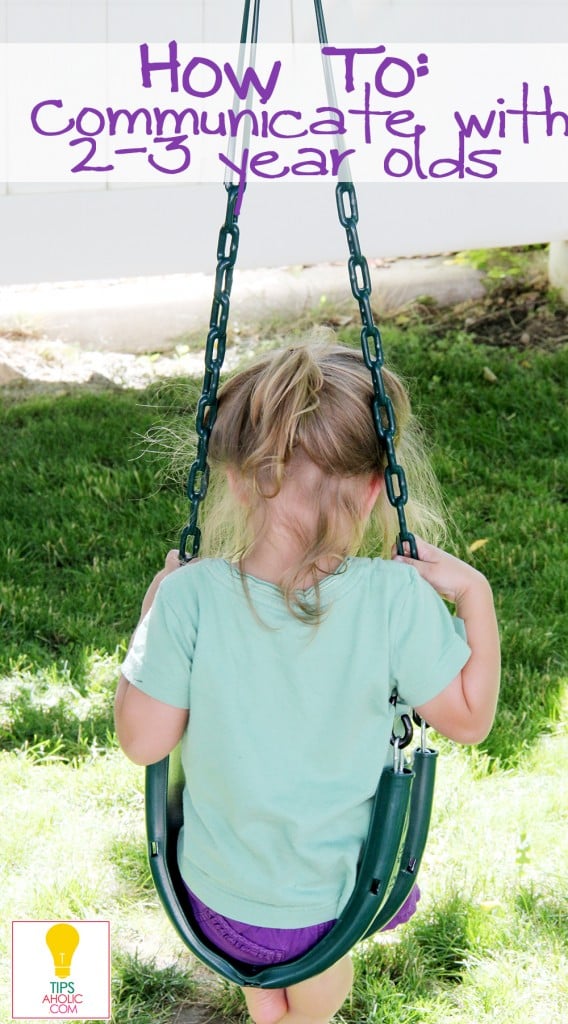Help Your 2 to 3 Year Old Listen!
10 ways to communicate to your 2-3 year old!
(So they will listen!)
1. Settle Feelings:
No one will listen if there are lost of frayed nerves in the conversation. Make sure that you take the 10 seconds to just breathe and think before discussing. Helping your child to calm down is just as important, so they can focus, give them that time if possible.
2. Avoid a Harsh or Yelling Voice:
I think it is natural in all humans, that when we get yelled at or spoken to in a harsh mean voice, we get defensive. Instead, use a calm voice and say their name, with a simple request. This will help them feel less attacked and they will be more willing to listen or respond.
3. Speak Eye to Eye:
Looking down at your child from full height, and commanding them to do something with a stern set in your eyes, is great for intimidation.. not for listening. Instead, get down on your child’s level. Ask them “Please look at my eyes”. Keep your eye’s expression soft (not hard). You want to help them engage in the conversation and feel like they are being heard too.
4. Short and Sweet:
Don’t rattle off a list of requests. Make one request at a time, and be direct. Try to keep it to one sentence.
5. Try to Avoid Negative Statements:
It seems like our first gut feeling is to tell them No. No eating treats, no running, no hitting, no writing on the walls… That is a lot of negative. Next time, instead of yelling “No Running!” try, “Let’s walk instead of running.” Try to rephrase the request without using the word no. If they don’t hear “No” every other word, they may actually respond to “No” when you absolutely have to use the word.
6. No If’s:
Instead of saying “If you do this… then that will happen” use the term “when”. “When you clean up your toys, then we can go outside.” “When,” implies that you expect them to obey, “if,” gives them a choice as to whether or not they are going to obey.
7. Choices:
If you are leaving and they aren’t putting on their coat ask, “Would you like the red coat or the blue.” Giving them a choice makes them feel more empowered and helps them want to be part of doing what needs to be done.
8. Help them to vocalize:
When you learn a new saying, there is nothing like reciting it out loud, to cement it in our brain. When a child makes a mistake, you want to help them understand what is wrong. They may not understand why they are being put in a time out, or having a toy taken away. Discuss what happened and why they had a consequence. Help them to apologize for what they did ” I’m sorry Mommy, I won’t hit you again.” Having them explain why they are sorry helps them to begin to understand what they did to cross the line.
9. Follow through:
If you tell your child that they are going to go to time out if they throw their toys again, then you MUST follow through when they do throw their toys again. If a child thinks you don’t mean what you say, they won’t listen when you say it. Do not give empty warnings.
10.Pick Your Battles:
You don’t need to fight about everything they do. A child needs to be able to make some choices on their own. When my toddlers were young my doctor advised me to choose 2 or 3 things that are not allowed to do. Be sure to discuss them with your partner, and agree that those are the things that you both will always back each other up on. (This helps parents not to bicker amongst themselves too when a child does something that one parent tolerates but the other dislikes.)
11. Don’t be afraid to apologize:
Sometimes, A LOT of times, when we are human we make a mistake and react with a harsh voice or yelling. Don’t be afraid to apologize to your child. Your child need to know and see that when you make mistakes you try to make it right.
Don’t feel like you have to do them all at one time. Just try to incorporate a few things into your day to day routine. As they become more routine, you will see a change for the better in both the way you respond to your child and they way they respond to you!
Cassity Kmetzsch started Remodelaholic after graduating from Utah State University with a degree in Interior Design. Remodelaholic is the place to share her love for knocking out walls, and building everything back up again to not only add function but beauty to her home. Together with her husband Justin, they have remodeled 6 homes and are working on a seventh. She is a mother of four amazing girls. Making a house a home is her favorite hobby.








Good tips, I had never thought of #6!
I’m the mother of a beautiful and energetic 2yr old daughter and I must say these things work! My husband and I have been using these tips from the beginning and its so natural now.
I would like to add that instead of time outs we do “time ins”. When DD gets upset, I sit on the floor with my arms and lap open and offer a hug. When she comes to me I wrap my arms tight around her and take a few deep breaths with her. Then I calmly start to talk to her about what happened to lead to her upset. I try to name emotions and possible triggers (hunger, tired, etc) for the event. It doesn’t take long for her calm back down and process the situation.
I am very excited to try number 6. I hadn’t thought of that one and know I’m bad about using “if”when telling her what the next thing would be. I’ve already called and told my husband so he can help too!
Fabulous tips, Cassity! I need to improve on the tips I was familiar with, but I have to tell you that I never hear the “no if’s” tip and I think it is genius! It sounds like the prior commenters had not heard that one either {glad I a not the only one}! I am going to share that one with my husband so that we can both start that with our twin 3-year old girls ASAP! Thank you! Pinning and sharing!
I work on these tips every day. I love being a Mom!
Recalling my mothering when the children were little, when I yelled or displayed what I considered inappropriate behavior, I did apologize. Then I added an explanation: “I’m so tired that I’m not talking the way I should.” “I have such an awful headache that I didn’t say what I meant to say.” “I was so scared that you would get hurt that my voice sounded angry but I’m not angry. I was just really scared.” “I’m worried about being late and missing our doctor appointment.” “I need a time-out so that I can calm down and try to get too many things done all at the same time. Could you sit with me for a minute? I think that might help.” You can help them to understand that sometimes there is interference with good communication, which causes problems that can escalate into shouting matches.
Great addition! Thanks!
Great tips! Thank you for sharing!
Thanks for the tips! These could be useful for baby sitters like me too!
I love all of these tips. I’m a first time mom with a two year old daughter. I’m very excited to try these. Thanks!